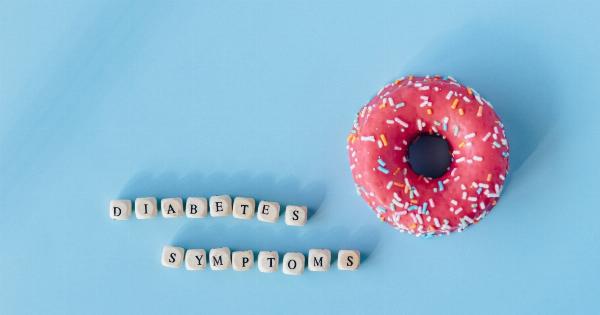Urine retention, also known as urinary retention, is a medical condition characterized by the inability to empty the bladder completely. It can be caused by various factors and can affect individuals of all ages.
In this article, we will explore some of the common conditions that can lead to urine retention, their symptoms, and possible treatment options.
1. Benign Prostatic Hyperplasia (BPH)
BPH is a condition commonly found in older men. It is the enlargement of the prostate gland, which gradually obstructs the urethra and causes difficulty in urination. As a result, urine retention can occur.
Symptoms of BPH-related urine retention include frequent urination, weak urine flow, and a constant feeling of incomplete bladder emptying. Treatment options for BPH may include medication, minimally invasive procedures, or surgery to relieve the obstruction.
2. Urinary Tract Infections (UTIs)
A urinary tract infection can cause inflammation and swelling in the urinary tract, leading to urine retention. The infection can affect various parts of the urinary system, such as the bladder, urethra, or kidneys.
Common symptoms of UTI-related urine retention include pain or burning sensation during urination, cloudy or bloody urine, and a frequent urge to urinate. Treatment for UTIs usually involves antibiotics prescribed by a healthcare professional.
3. Urethral Stricture
A urethral stricture refers to the narrowing of the urethra, which can impede the flow of urine and result in urine retention. This condition can be caused by scar tissue, infections, or trauma.
Common symptoms of urethral strictures include a weak urine stream, frequent urination, and the feeling of incomplete bladder emptying. Treatment options may include urethral dilation, urethrotomy, or surgical reconstruction.
4. Bladder Stones
Bladder stones are hard mineral deposits that develop in the bladder. They can obstruct the normal flow of urine, leading to urine retention.
Symptoms of bladder stones may include lower abdominal pain, blood in the urine, frequent urination, and difficulty in starting or stopping the urine stream. Treatment options for bladder stones can range from medications to surgical removal.
5. Neurological Conditions
Various neurological conditions can disrupt the normal signaling between the bladder and the brain, increasing the risk of urine retention.
Conditions such as spinal cord injuries, multiple sclerosis, and stroke can affect the nerves that control bladder function. Symptoms may include a weak urine stream, difficulty initiating urination, and a feeling of incomplete bladder emptying. Treatment options for neurological-related urine retention may include behavioral therapies, medications, or surgeries.
6. Medications
Certain medications, such as antihistamines, decongestants, and muscle relaxants, can interfere with the normal bladder function and cause urine retention.
It is important to communicate and discuss any medication-related concerns with a healthcare professional. They may adjust the dosage or prescribe alternative medications to alleviate the symptoms.
7. Pelvic Organ Prolapse
Pelvic organ prolapse occurs when the pelvic organs, such as the bladder, uterus, or rectum, descend and push against the vaginal walls. This pressure can lead to urine retention due to the obstruction of the urethra.
Symptoms of pelvic organ prolapse-related urine retention include a frequent urge to urinate, incomplete emptying of the bladder, and discomfort or pain during intercourse. Treatment options may involve pelvic floor exercises, pessary use, or surgical intervention.
8. Pregnancy
During pregnancy, the growing uterus can exert pressure on the bladder and urethra, causing urine retention. Hormonal changes during pregnancy can also affect the muscle tone of the bladder and impair its ability to contract effectively.
Symptoms of pregnancy-related urine retention may include a frequent need to urinate, difficulty initiating urination, and a feeling of incomplete bladder emptying. In most cases, urine retention during pregnancy resolves after childbirth.
9. Postoperative Effects
After certain surgeries, particularly those involving the pelvic or lower abdominal region, urine retention can be a temporary side effect.
The trauma caused by surgical procedures can lead to swelling and dysfunction of the bladder muscles, resulting in urine retention. It is essential to follow the postoperative instructions provided by the healthcare team, including regular bladder emptying techniques and medications if prescribed.
10. Obesity
Obesity can contribute to urine retention by putting excess pressure on the bladder and urethra. This pressure can obstruct the normal flow of urine and lead to incomplete bladder emptying.
Symptoms of obesity-related urine retention may include difficulty initiating urination, weak urine stream, and frequent urination. Weight loss, dietary modifications, and exercises targeting the pelvic muscles may help alleviate the symptoms.
In conclusion, urine retention can be caused by various conditions, ranging from benign prostatic hyperplasia to obesity. Recognizing the underlying cause of urine retention is crucial for proper diagnosis and treatment.
If you experience persistent or bothersome symptoms related to urine retention, it is important to consult a healthcare professional for appropriate evaluation and guidance.






























